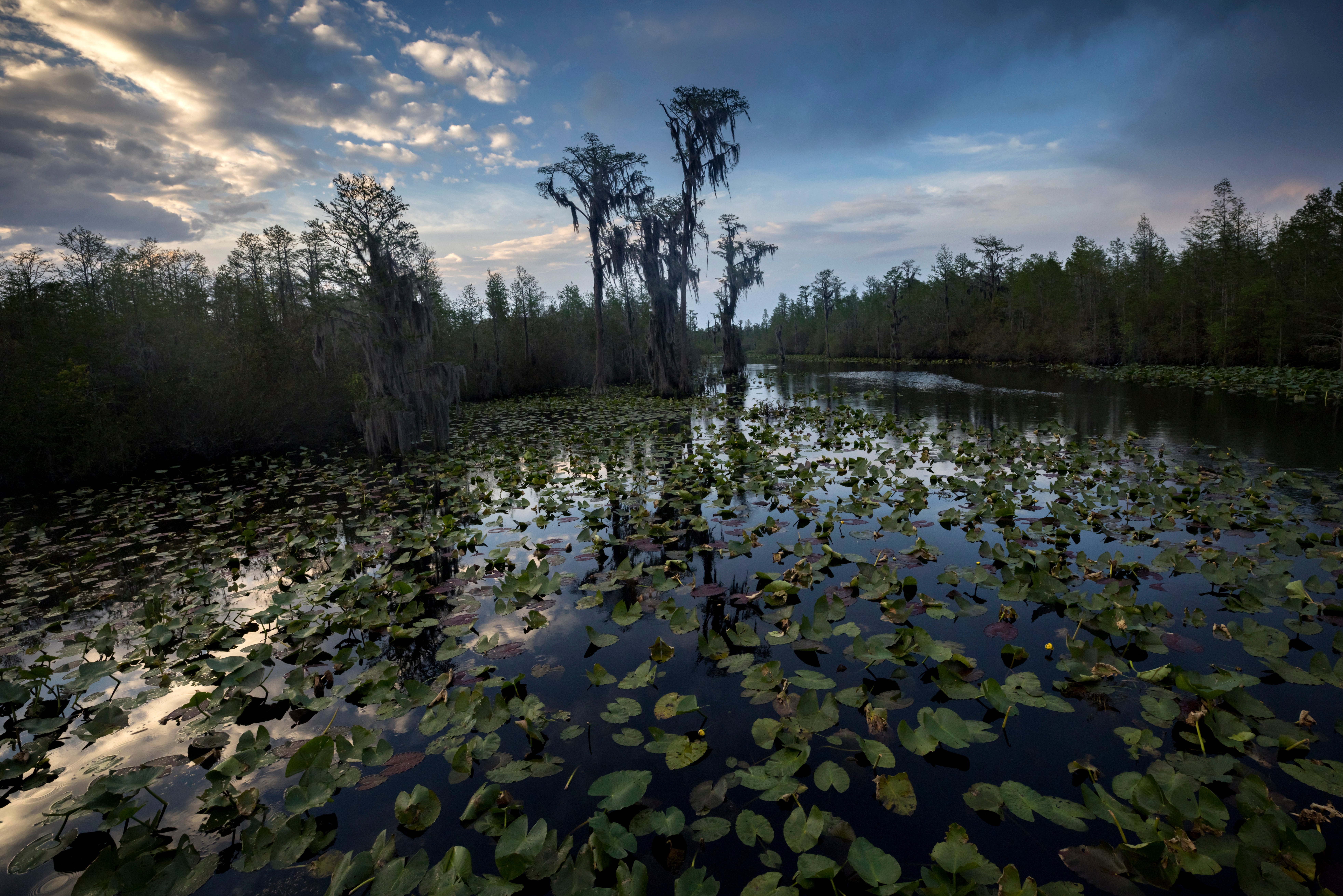Company: Legal settlement puts Okefenokee mine back on track
A company seeking to mine in southeast Georgia near the edge of the Okefenokee Swamp says the project is back on track after a federal agency reversed a June decision that had temporarily blocked it

Your support helps us to tell the story
From reproductive rights to climate change to Big Tech, The Independent is on the ground when the story is developing. Whether it's investigating the financials of Elon Musk's pro-Trump PAC or producing our latest documentary, 'The A Word', which shines a light on the American women fighting for reproductive rights, we know how important it is to parse out the facts from the messaging.
At such a critical moment in US history, we need reporters on the ground. Your donation allows us to keep sending journalists to speak to both sides of the story.
The Independent is trusted by Americans across the entire political spectrum. And unlike many other quality news outlets, we choose not to lock Americans out of our reporting and analysis with paywalls. We believe quality journalism should be available to everyone, paid for by those who can afford it.
Your support makes all the difference.A company seeking to mine in Georgia near the edge of the Okefenokee Swamp's vast wildlife refuge said Monday that its project is back on track after a federal agency reversed a June decision that had posed a big setback.
Twin Pines Minerals said the Army Corps of Engineers has agreed to settle a lawsuit filed by the company by once again relinquishing the agency's regulatory oversight of the proposed mine in southeast Georgia near the Okefenokee, home to the largest U.S. wildlife refuge east of the Mississippi River.
“We appreciate the Corps’ willingness to reverse itself and make things right," Twin Pines President Steve Ingle said in a statement, calling the development “great news" for the project.
Scientists have warned that mining close to the swamp’s bowl-like rim could damage its ability to hold water. They urged the Army Corps of Engineers to deny the project a permit. But the agency declared in 2020 it no longer had that authority after regulatory rollbacks under then-President Donald Trump narrowed the types of waterways qualifying for protection under the Clean Water Act.
Trump’s rollbacks were later scrapped by federal courts. President Joe Biden’s administration has sought to restore federal oversight of development projects that under Trump had been allowed to sidestep regulations to prevent pollution of streams or draining of wetlands.
In June, the Army Corps notified Twin Pines that its prior decisions allowing the company to bypass federal regulators “are not valid” because a tribal government with ancestral ties to the proposed mining site had not been consulted. The agency said the Georgia project couldn't move forward without consultation with the Muscogee Creek Nation.
Twin Pines quickly sued the Army Corps in U.S. District Court, arguing the agency was “asserting jurisdiction the federal government does not possess.” The company noted the Corps' finding from October 2020 that it lacked jurisdiction over the mining project should be valid for five years.
A copy of the settlement, which Twin Pines provided to The Associated Press, says the Army Corps will honor that five-year span unless “new information” surfaces that causes the agency to revisit whether it should reclaim oversight of the project near the Okefenokee.
Cheri Pritchard, a spokesman for the Army Corps' Savannah District, said she could not comment and referred a reporter to the Justice Department, which had attorneys represent the agency in the Twin Pines lawsuit. An email message to the Justice Department seeking comment Monday evening was not immediately returned.
Without oversight by the Army Corps, the only regulatory approval Alabama-based Twin Pines needs is from Georgia’s Environmental Protection Division. The proposed mining area includes more than 556 acres (225 hectares) of wetlands.
The Okefenokee National Wildlife Refuge covers nearly 630 square miles (1,630 square kilometers) in southeast Georgia and is home to alligators, bald eagles and other protected species. The swamp’s wildlife, cypress forests and flooded prairies draw roughly 600,000 visitors each year, according to the U.S. Fish and Wildlife Service, which manages the refuge.
Two decades ago, chemical giant DuPont retreated from plans to mine outside the Okefenokee after meeting fierce resistance. Twin Pines wants permits to mine a small fraction of the acreage DuPont pursued. Ingle has insisted his company can mine the site without harming the swamp.
Government scientists have been skeptical. In February 2019, the Fish and Wildlife Service wrote that the proposed mine could pose “substantial risks” to the swamp, including its ability to hold water. Some impacts, it said, “may not be able to be reversed, repaired, or mitigated for.”